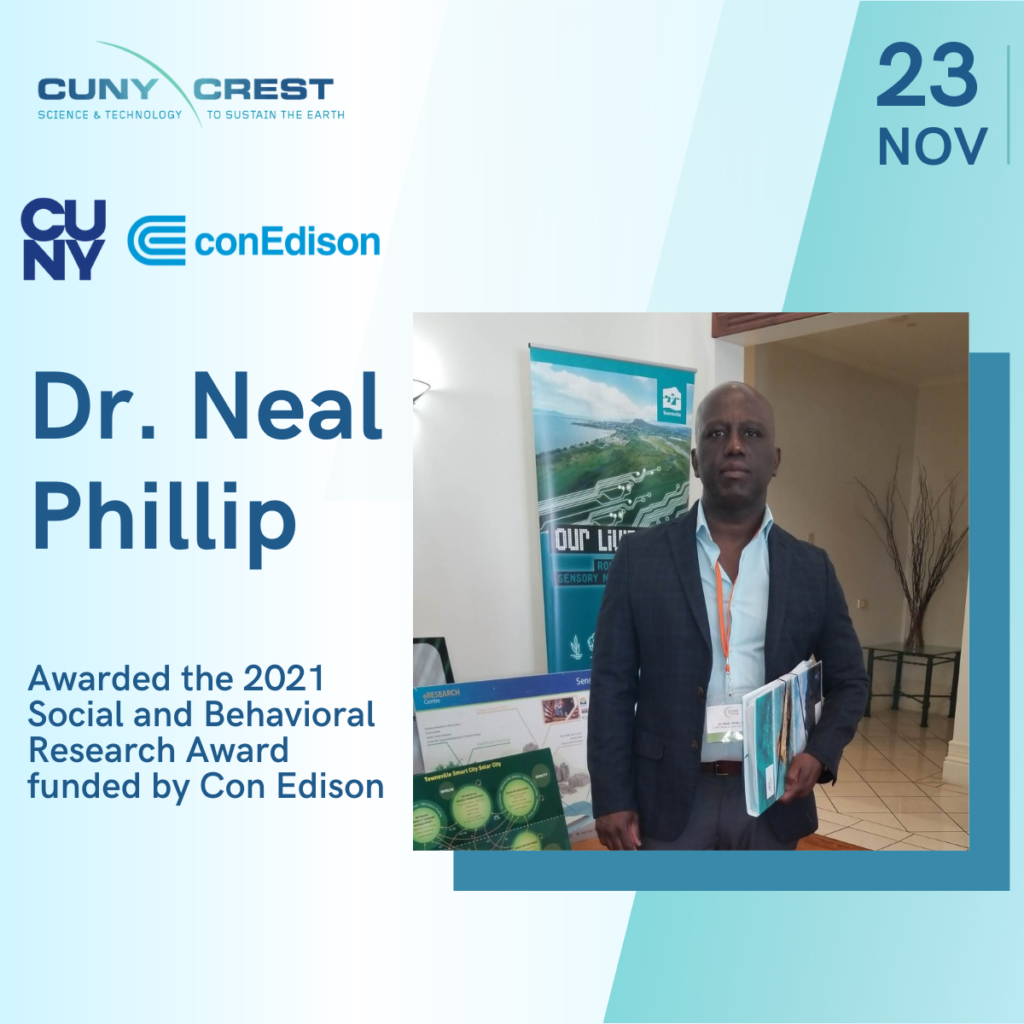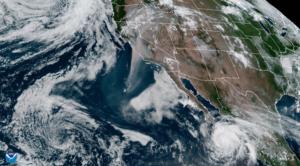Dr. Neal Phillip awarded the 2021 Social and Behavioral Research Award funded by Con Edison
This month, Dr. Neal Phillip’s proposal titled, “Sensitizing NYC to Reporting Methane Gas Leaks using Monitoring, Collective Social Learning and Thematic Communication” received $35,000 in funding through the 2021 Con Edison Social and Behavioral Research Award. Five other faculty members received awards through this program.
Dr. Neal Phillip is Professor and Chairperson of the Department of Chemistry, Earth Sciences, and Environmental Sciences at Bronx Community College (BCC). He has previously installed solar powered weathered stations in India, Australia, Spain, with CUNY students, in Trinidad and Tobago, and on Governors Island at the New York Harbor High School. Dr. Phillip is serving as the Lead PI for this project. Dr. Ken Irish Bramble, an Associate Professor in the Department of Social and Behavioral Science at Medgar Evers College/CUNY, is the CO-PI on this project.
The Con Edison Social and Behavioral Award was created to increase public awareness of gas safety and of the importance of reporting natural gas odors. Projects must aim to better understand factors that may or may not prompt community members to contact Con Edison.
Dr. Phillip’s project helps bring light to the importance of reporting gas leaks and the harms of leaking methane in natural gas from aging utility pipes. Leaking natural gas caused a building explosion in Harlem in 2014 that killed eight people. Dr. Phillip’s project proposes a 6-month natural gas monitoring campaign in the Bronx and upper Manhattan using BCC’s Picarro G2301 greenhouse gas monitor that quantifies Methane and a Picarro model G4302 analyzer, which can measure methane and ethane. Natural gas typically has ethane to methane ratios of 2-5%. Apart from leaking utility pipes, other sources of methane in the ambient atmosphere include agricultural livestock, landfills, and wastewater treatment plants. None of these other sources however, produces ethane, so detection of ethane/methane ratios in 2-5% range indicates the source of natural gas from a leaking utility pipe. Conventional weather data will also be collected with backpack weather stations, which were first developed by NOAA-CREST.
Knowledge about the gas leaks will also be shared with the communities through collective social learning workshops and thematic communication messaging with help from experts. CUNY undergraduate students will be hired to assist in all project activities.


